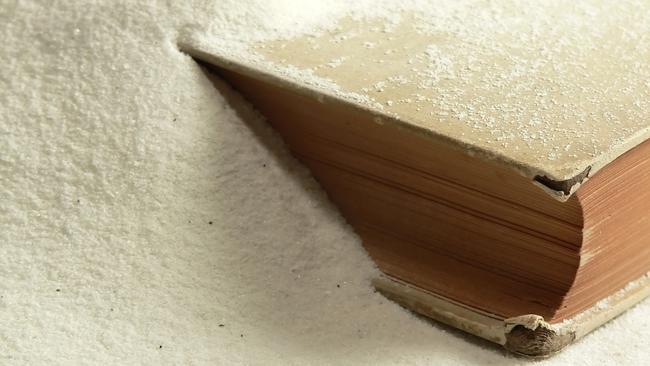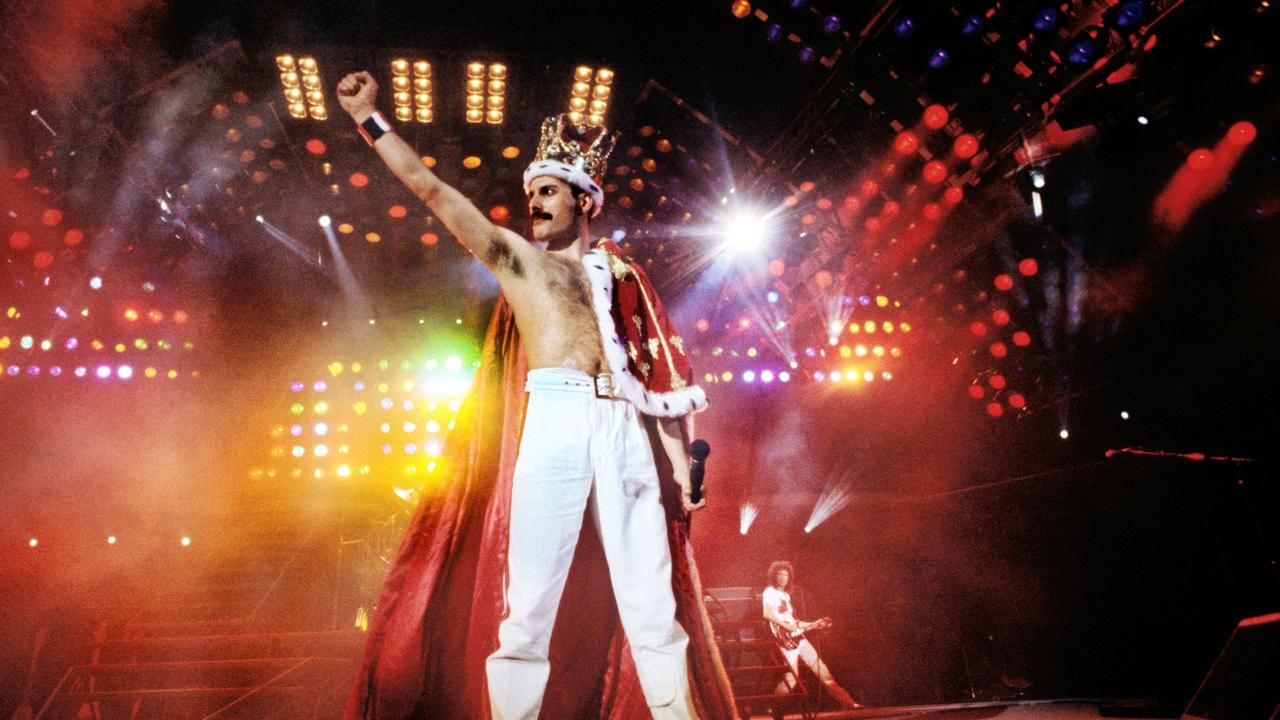Australian literature crisis as government funding cuts kick in
The political antagonism towards our writers and their work leaves us all worse off.

Karl Kraus was the greatest journalist of fin-de-siecle Vienna. He was also the most lucid critic of the profession in his day. He believed that if we were obliged to imagine the reality behind the information in our morning newspapers, then our horror and disgust would drive us to alter it. As Kraus’s mid-century defender, German-Jewish scholar Erich Heller, put it: “If one man’s imagination were inspired by it and gave expression to it, all the tragedies of ancient Greece would dwindle into idyllic sentimentalities before such a drama of human corruption and human agony.”
Heller’s words came to mind a few days ago, during an audience question on ABC’s Q&A program, when Malcolm Turnbull was addressed by an asylum-seeker from Manus Island. Behrouz Boochani, a Kurdish-Iranian journalist, beamed into the cosy confines of the television studio from a prison thousands of kilometres away. He looked gaunt, wounded; there was a monkish severity about him. And when Boochani asked the Prime Minister why he, a man who had been obliged to leave his family and homeland, who had gambled everything on a new life, found himself in indefinite offshore detention, I felt a rent open up between abstraction and the real. Turnbull, umm-ing and ahh- ing, saw it too. No degree of eloquence in the defence of bipartisan government policy would erase the fact of this man, his palpable anger and despair.
Through this tear rushed other authors and other words. Looking at Boochani, I thought of the essay written by French philosopher and Christian mystic Simone Weil. Her The Iliad, or Poem of Force appeared in 1940 following the fall of France and Europe’s plunge into years of conflict and destruction. It investigates, through a reading of Homer’s epic poem, the ways in which force inflects on human affairs. She saw force not just as a matter of war, of bodies doing violence to other bodies, but as a phenomenon various in its effects. For example, she writes, the slave and the supplicant may be turned by the use of force into something halfway between the living and the dead:
From its first property (the ability to turn a human being into a thing by the simple method of killing him) flows another, quite prodigious too in its own way, the ability to turn a human being into a thing while he is still alive. He is alive; he has a soul; and yet — he is a thing.
“Who can say,” she concludes, “what it costs it, moment by moment, to accommodate itself to this residence, how much writhing and bending, folding and pleating are required of it? It was not made to live inside a thing; if it does so, under pressure of necessity, there is not a single element of its nature to which violence is not done.”
Who can say, indeed. The force that flows from legislative fiat, through prison guards and razor wire, would seem to have this effect on Boochani and his fellow inhabitants of Manus, Nauru and Christmas islands, turning them into what Weil called a compromise between a man and a corpse. Yet in moments like that which took place on Q&A, we see the striving of the soul to become more than the subject of force. The lineaments of the struggle take place in front of our eyes. There is a painful dignity to such efforts; and it is as hard for us to look, as it is for us to look away.
Still, we are dealing with external reality in this instance: we deduce the inner struggle from the outer. There is another way. Neil Gaiman calls the novel “an empathy machine”, by which he means the imagination of the creative writer enters into presumed fraternity with the “thing” and ventures, using language and narrative, to furnish the speculative psychological inscape of the object of their attention. The old-school historian marshals fact — numbers, dates, places, events — to describe the objective truth of a given conflict, say the fall of France, which Weil lived through. But the creative writer sinks into the skin of those who were there, enters into the thoughts and emotions of the wounded and dying, the displaced and damaged, and gropes towards some more visceral truth.
Countless students of World War II have relayed the details of the fall of France. They have mapped out the battles, tallied the living and the dead. Why, then, when we turn to the pages of a work such as Antoine de Saint-Exupery’s account of the same events, Flight to Arras, and find another order of veracity at work? Here the aristocratic early aviator, now a French Air Force pilot, flies what is likely a doomed mission to take reconnaissance photos at Arras in the early days of the conflict. While beneath the civilisation that nurtured and shaped him burns, he seeks some place from which to gain a fuller vantage:
I longed for the night as the poet might do, the true poet who feels himself inhabited by a thing obscure but powerful, and who strives to erect images like ramparts round that thing in order to capture it. To capture it in a snare of images.
In the midst of war, Saint-Exupery and Weil turn to poetry, not because they are seeking an escape from terrible circumstance but because they want a purer mirror to reflect it, or a series of depictions that will animate it. They seek to most fully and faithfully engender plain fact with human feeling.
I leave the role of chief literary critic at Australia’s sole national broadsheet at a curious moment. The writing of the continent I have spent the past eight years celebrating and critiquing faces a moment of crisis, not because of war or some other imminent disaster but because we have decided we cannot afford the insights that creative writers afford. At a moment of unprecedented national prosperity, we feel so poor that the pittance set aside for the kind of activities undertaken by novelists and short-story writers, dramatists and poets — all those words for which the market can find no easy accommodation — must of necessity be muted.
Whether we speak of the funding cuts that have gutted research and university libraries around the country, or the 40 per cent reduction in grants available to individual authors via the Australia Council, or the defunding of those literary magazines that incubate literary talent, or the likely dismantling of our local publishing industry through the scrapping of parallel importation laws, the landscape is a blasted one. Not since the establishment of the Australia Council to assist the development of a national literature in the early 1970s has the situation been so grim. Poverty, or at least precarity — you could call it the economic version of supplication — is the lot of most writers at work in Australia today. In a country where the average yearly income was $58,000 in 2013, authors earn (from their own writing) $12,900, less than a quarter of the norm.
Many significant figures in Australian literature, from author Richard Flanagan to publisher Michael Heyward, have recently dealt with the minutiae of this retreat from responsibility towards writers and their work. They have explained how a small, nimble, barely subsidised corner of the arts has become the most successful cultural export we have, a major part of an industry that is larger than the agriculture sector in terms of gross domestic product. But this is often front-office discussion regarding the studs and nogs of policy and law. We also need to talk about the social function of literature. We need to acknowledge those aspects of the literary enterprise that do not fit the usual frameworks.
The first of these is the sense of cohesion that a national literature provides. I don’t mean by this the narrow and often xenophobic patriotism or white identity politics bruited by the Donald Trumps, Nigel Farages and Pauline Hansons of this world. Theirs is a cohesion premised on exclusion. It is mendacious and ugly, and in its discourse queasy euphemism shades into outright racism and demagoguery. Rather, I mean a broad church of perspectives, in which membership is open to anyone with passion, application, imagination, intelligence, insight and care. The works and their creators who inhabit this church do not have a common platform; instead, they have a common orientation: towards honesty, towards ambiguity, towards engagement with others and the world. In this sense, at least, authors of a national literature such as ours may be seen as the opposite of Trump and his ilk, mired in ignorant certitude.
I’ll go further: the recrudescent racial politics throughout the West in recent years may be characterised by a kind of sterility. Its adherents look backward to an imagined perfection, a changeless world in which lesser races know their place and the village green is immaculate. It is a monoculture of the mind and spirit they summon: a vision in aspic. But our national literature is closer to what ecologists call an ecotone: a transition area between two biomes, a place where communities meet and integrate. Think of the wetlands where land meets sea, or the point where a farmer’s paddock meets a state forest. The result is an uptick in vigour and life. More species, more dynamic growth — as though the meeting of differences were a necessary condition of true fecundity.
Each of the narratives that make up this reef of words individually performs this meeting of differences. They enunciate the fear and trepidation we feel when faced with the Other, they trace the comic or tragic misprisions of which we are capable, even when venturing to know those closest to us. They can be livid with the violence of the world. They can be deliquescent as cloud. But each creative instance adds to the massed brilliancy of the whole, an agglomeration welded together by fruitful difference, made stronger by it.
The second virtue of a national literature emerges from this variousness. Our novels and stories are theatres of possibility for our individual and collective futures. They investigate the results of impulses we feel but have not yet acted on. They cut an existing social order to shreds and remake it in an image that is dystopian or utopian. They project into futurity and extrapolate the terrible possibilities arising from our current situation. But they also dream of worlds without disaster, states of being without pain, reminding us how much there remains to be grateful for. Exposure to such stories is not without consequence. Once we have been expanded by a book, the mind never fully relinquishes the new parameters set in place.
I leave this blessed role with a renewed sense of wonder at what the authors of Australia can do, even under the most difficult circumstances. But the sense of disquiet at those circumstances remains. Our politicians are not fools — or if they are fools then they are at least cunning — so there must be a reason they would take up arms against that subset of the Australian community more respected and loved and more eloquent in argument than they could ever be.
This, for what it is worth, is my theory: the richness of human possibility that is Ozlit’s stock in trade is an affront to the barren and denuded vocabulary both sides of politics employ. It must be galling to witness the ocean of meaning summoned by the most talented writers when you traffic exclusively in three-word sound bites. It must be a matter for shame that there exists a tribe of truth-tellers, of complexity-mongers, of beauty-makers when all you have to offer are stale and fear-filled reiterations of a politics that has brought material prosperity but little more.
Finally, it seems that Australian writers’ refusal to circumscribe their imaginative identifications — to leave their scruples at immigration — prods at the individual conscience of those policymakers who wish to draw tight circles around those permitted to share in our common wealth, our vaunted freedoms, our island peace. What Australia’s writers know, which its politicians refuse to know, is that the dignity and fraternity we grant others by our imaginative and empathetic attentions is universal or it is nothing. Homo sum, humani nihil a me alienum puto — ‘‘I am human, and nothing of that which is human is alien to me’’ — wrote Roman playwright Terence more than two millennia ago. What is less known about Terence is that he was a Berber. He was a brown-skinned citizen of the Republic.
By expanding the range of our sympathies, by drawing into the Australian community asylum-seekers, indigenous Australians, all those who do not comport to established norms of gender or class or sexuality, our authors reveal the crimped, selective morality of our leaders. The realist takes in these lines and nods sagely: of course, writers are free to imagine whatever they please. Politicians are bound by custom and precedent; they must govern to the middle. They must work within limits. But it is one thing to acknowledge realpolitik, quite another to limit the ability of those who would question the necessity and decency of those politics through their works.
A democratic polity survives not through some drear application of outmoded rules, or through the amplification of anxieties in the community as a means of retaining power. It exists in the necessary tension between those who manage existing realities and those who shape alternative visions of the world. The past eight years have shown me that in a nation where those strands are unbalanced, all of us eventually lose human volume. Our leaders become what Joseph Conrad called “papier-mache Mephistopheles”, husks held together by slogans and glue. And we, the citizenry? We become slaves and supplicants to forces beyond our control. Without the plenitude of story, we, too, eventually become things.
Geordie Williamson was chief literary critic of The Australian from 2008 to 2016. He is the incoming publisher of Picador Australia.



